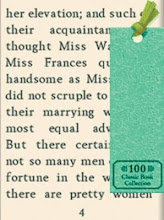The 5ft-tall plant was grown from a 2,000-year-old seed found at the ancient Israeli fortress of Masada.
It came from a Judean date palm tree that could have been growing in the forests between Galilee and the Dead Sea when Jesus was alive.
The discovery has astonished botanists. Previously, the most ancient seed to germinate was 1,300 years old and had been preserved in cold water.
Dr Sallon - a British doctor who runs the Hadassah Medical Organisation in Jerusalem - soaked the seed in warm water and fertiliser three years ago before she planted it. Within eight weeks it had started to sprout.
Tests on the seed, reported today in the journal Science, confirmed the sapling was around 2,000 years old - the time when the Masada was in use.
Previously, the oldest seed to produce a plant was a 1,300-year-old Chinese lotus grown in America in the 1990s.
Judean date palms - also known as 'trees of life' - once formed thick forests all along the Jordan River.
The forests were destroyed by the Romans and the Judean date palm became extinct more than 1,000 years ago.
Today, Israel imports palms. So if the sapling bears fruit, it will be first time anyone has tasted a real Judean date for more than a millennium.
However, the team will not know whether the tree is a male or female for another two years.
If the Methuselah tree is female, it could be used for cross-breeding to restore the long extinct species. Early DNA tests suggest the 2,000-year-old plant could share around half its genetic code with modern dates.
The fruit was believed to provide a natural remedy for numerous ailments, ranging from heart problems to constipation. It was also used to treat TB, gut problems, chest infections and worms.
In Roman times, Judean dates were a famous delicacy. The historian Pliny described them as large and delicious.



No comments:
Post a Comment